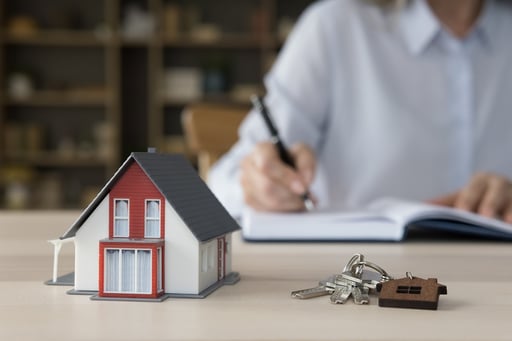Long-term rental properties make for great investments, but they are not always as easy to manage as one might expect. While these properties provide great income and potential for appreciation, the day-to-day handling of tenants and property related maintenance can be intense if you aren’t an experienced landlord. Successfully managing a rental property investment involves careful planning as well as putting systems in place that will make management easier for you. Maximizing your return on investment will also require you to do research so you can better understand the rental market. Continue reading for some tips on how to make the most of a long-term rental property investment.

Selecting Quality Tenants
The first step to successful rental property management is having a good system in place for selecting tenants. Taking the time to carefully vet each applicant means you’re less likely to run into issues like missed payments or property damage. Your tenant selection process should involve a background and credit check, and if possible you should look into the rental history of the applicant. Speaking with their former landlords might give you a good idea of how they are as tenants. You will also want to craft up a clear and comprehensive lease agreement that covers all your bases, including establishing policies on late fees, security deposits, pets, subletting, and property maintenance.
Effective Communication Processes
Keeping in regular contact with your tenants can make your life easier when managing rental properties. Not only does it mean you can address any issues before they balloon into bigger ones, but it will also help you build good relationships with your tenants. Knowing that they are in good hands means your tenants will be more likely to stay at your property for a long time. You should make the effort to take care of any requests right away, and set up check-ins at regular intervals (we recommend monthly or quarterly) where you can deal with any more complex matters. The effort you put in here will pay off in peace of mind over the life of the rental investment.
Proactive Maintenance Strategies
Being proactive when it comes to handling property maintenance will also help you in the long run. We mentioned how smaller issues can often grow into major ones if left unattended, and this holds especially true in property upkeep. Taking good care of your property will improve tenant satisfaction, minimize unexpected costs, and give you peace of mind. For larger issues that you aren’t able to handle on your own, ensure you are hiring quality contractors that you know will deliver good work; this way you know it won’t just need to be repaired again in the near future.
Setting and Adjusting Rental Rates
We also want to provide some practical tips on how to handle rental rates. It is not recommended to raise rent by a major amount, and it’s even illegal to do so in some jurisdictions. This is a great way to lose tenants and will likely cause you more issues than it’s worth. There are certain cases where you will need to raise rent however, and if you must then you should do it by an incremental but reasonable amount, while also giving your tenants ample notice. If you want to get a good idea of what the market rate is for a certain unit you can take a look at comparable properties, but be sure to take the property’s condition, location, amenities, and other market trends into consideration.
Handling Tenant Issues
Despite your best efforts to build a positive rental experience, sometimes there are issues which may arise, and how you handle these issues is important. For issues like late payments or property damage, you can follow the stipulations laid out in your lease agreement, but you will also need to ensure that you’re in adherence with landlord-tenant laws in your local jurisdiction. This is also why it’s so important to have a comprehensive lease agreement, so you can already have an established policy for situations like these.
For more complex issues, you may need to seek out a mediation-oriented approach or even take the dispute to court. If a conflict comes to this, you will need to ensure you have documented everything related to the lease up until that point. Keeping good documentation can help you avoid unnecessary disputes, and protect you in the case that one does get escalated to court. Having properly established communication channels with your tenants may also allow you to handle these disputes without ever needing to escalate them.
Utilizing Technology for Efficiency
You may be able to keep track of all the numbers and other tiny details when you’re dealing with a small rental portfolio, but as you manage more and more units you will start to need help. This is where making use of technology can be very beneficial. There are property management tools you can utilize to make keeping track of rent and property maintenance schedules easier. Many of these applications have features that allow you to easily reach out to tenants, and even help you fill vacancies. Consider using one of these applications if you find yourself getting overwhelmed by how many things you need to be on top as you scale your business.
RCN Capital
The easiest way to save on rental property financing is to find a trusted lender that can get you the best leverages and rates. RCN Capital lends to real estate professionals, commercial contractors, developers & small business owners across the nation. We provide short-term fix & flip financing, long-term rental financing, and new construction financing for real estate investors. RCN Capital also has flexible and competitive loan options available. Are you looking to purchase or refinance an investment property?
.png?width=234&height=80&name=logo-white-1%20(2).png)
